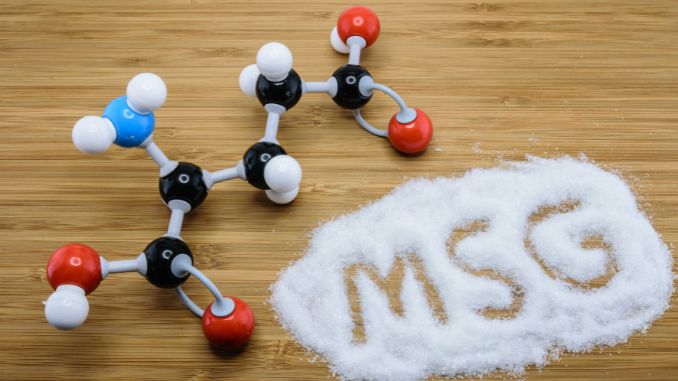Have you ever walked through a bustling food park, the aroma of sizzling dishes pulling you in, only to wonder what’s really in that irresistible bite? Vetsin side effects might be something to consider when indulging in these flavorful delights.
Most of us savor the flavors without thinking about what goes into making them so addictive.
One common ingredient, MSG (monosodium glutamate), is often used to enhance taste, but how much of it are we consuming?
Chances are, you’ve eaten it without realizing it—hidden in sauces, seasonings, and even soups.
Let’s dive into what MSG is, why it’s used, and whether it’s something to keep an eye on during your next food adventure.
What Is MSG?
Vetsin, commonly known as monosodium glutamate [2] (MSG), a common food additive and flavor enhancer, has long been a topic of debate in the health and wellness space.
Found in a variety of processed and restaurant foods, including Chinese food, canned vegetables, and salad dressings, MSG is derived from glutamic acid, an amino acid that occurs naturally in many foods. However, some individuals may experience side effects from consuming MSG (vetsin) , leading to concerns about its impact on health.
Despite being generally recognized as safe by regulatory bodies like the Food and Drug Administration (FDA), MSG consumption has been linked to adverse reactions such as chest pain, burning sensations, and difficulty breathing, often referred to as “Chinese Restaurant Syndrome.”
Scientists are still studying MSG through clinical and animal research to understand its possible health effects, how it might affect brain function and nerve cells, and its connection to metabolic disorders and sodium consumption.
According to registered dietitian Samantha Heller, “MSG can be part of a balanced diet if consumed in moderate amounts, but people with sensitivities should avoid it and focus on whole, unprocessed foods.”

Let’s look into the pros and cons of MSG.
The Pros And Cons Of MSG
MSG is prized for enhancing the flavor profile of dishes, making them more palatable and enjoyable. From soups to snacks, MSG’s umami kick has revolutionized the culinary world.
Beyond flavor, MSG is low in calories and fat, which may make it a better alternative to excessive salt or fat-laden seasonings.
However, the potential side effects of MSG, also called “vetsin side effects,” have raised health concerns.
Some people report experiencing symptoms like headaches, sweating, flushing, or nausea after consuming MSG, a condition often labeled as “MSG symptom complex [1] .” While not everyone is sensitive to MSG, those who are may experience discomfort even in small amounts.
Nutritionist Dr. Michael Greger also emphasizes, “For the general population, the risks of MSG are minimal, but it’s always wise to listen to your body’s reactions and adjust your diet accordingly.”
Studies On MSG
A study from The Journal of Headache and Pain indicated that MSG could trigger headaches in susceptible individuals. On the flip side, research in Nutrients highlights the negligible risks of MSG when consumed in moderate quantities and as part of a balanced diet.
Common Symptoms Of MSG Sensitivity

While MSG is safe for most people, some may experience mild to severe symptoms, including:
- Headaches or migraines
- Flushing or sweating
- Nausea or stomach discomfort
- Heart palpitations
- Numbness or tingling sensations
These symptoms usually appear within a few hours of consuming MSG-rich foods and are temporary. However, chronic overconsumption may contribute to metabolic issues or exacerbate pre-existing conditions.
Preventing Adverse Reactions To MSG
If you’re sensitive to MSG, the following tips can help reduce the risk of symptoms:
- Read Food Labels: Check for MSG or its aliases (e.g., hydrolyzed vegetable protein, yeast extract) on ingredient lists.
- Opt for Fresh Ingredients: Cooking meals from scratch with fresh ingredients allows you to avoid hidden MSG in processed foods.
- Moderation Matters: Even if MSG doesn’t bother you, it’s still a good idea to enjoy it in moderation as part of a healthy diet.
- Get Professional Advice: If you’re unsure about food triggers or how MSG fits into your diet, a nutritionist can help you figure out what works best for your body.
Wrapping Up
The topic of MSG and its effects isn’t always clear-cut. While it adds great flavor to food, it’s worth paying attention to how it affects those who may be sensitive. Some reported side effects of MSG (vetsin) sensitivity include headaches, sweating, flushing, nausea, chest pain, and weakness.
Stick to reliable information, keep track of any symptoms, and work with experts to make food choices that support your overall health.
Discover the power of healing foods with the Anti-Inflammatory Cookbook Bundle! Packed with delicious, easy-to-follow recipes, this bundle helps you fight inflammation, boost energy, and support overall wellness. Say goodbye to bloating, joint pain, and fatigue—one meal at a time!

FAQ’s
How to Flush Out MSG from the Body?
Drink plenty of water to help flush out MSG and stay hydrated. Consuming foods rich in antioxidants, like fruits and vegetables, can also aid the body in processing and eliminating MSG.
How Long Does It Take for the Effects of MSG to Go Away?
For most people, the effects of MSG sensitivity, like headaches or nausea, typically subside within a few hours, though this may vary depending on individual sensitivity.
How Do You Treat MSG Symptoms?
Rest, hydration, and avoiding further MSG intake are key. Over-the-counter pain relievers can help with headaches while eating fresh, whole foods may provide relief from digestive symptoms.
How Much MSG Is Safe Per Day?
The FDA considers MSG safe and has no specific daily limit. However, studies suggest that consuming less than 3 grams per day is unlikely to cause adverse effects in most individuals.
What Organ Does MSG Affect?
MSG primarily affects the brain by interacting with glutamate receptors, but it may also impact the digestive system and trigger symptoms like headaches or nausea in sensitive individuals.

Rick Kaselj MS, is a leading kinesiologist and injury specialist as well as co-creator of the best-selling Unlock Your Hip Flexors program. Rick creates exercise programs that help people heal injuries and eliminate pain, so they can go back to living a full, active, healthy life.



